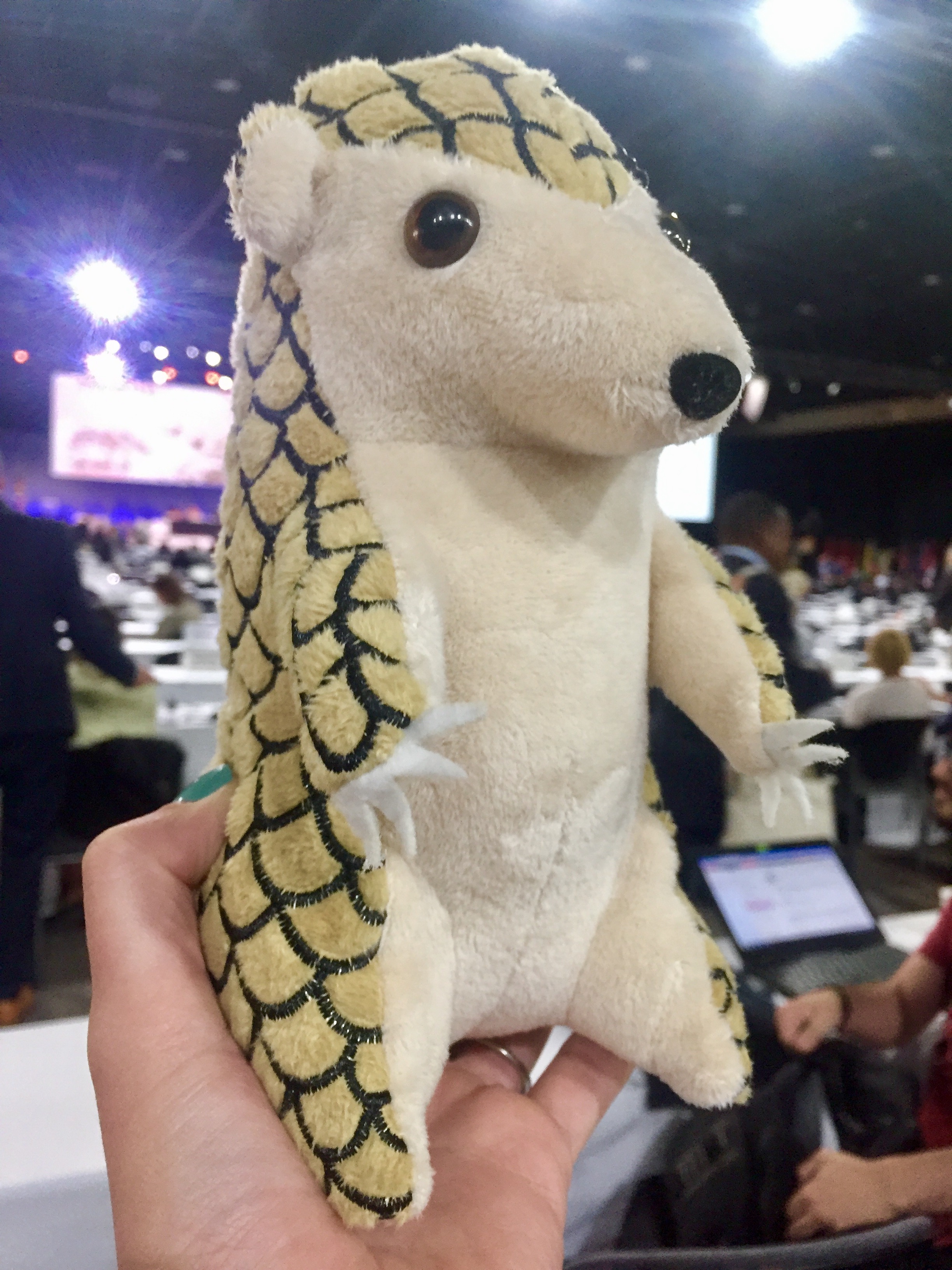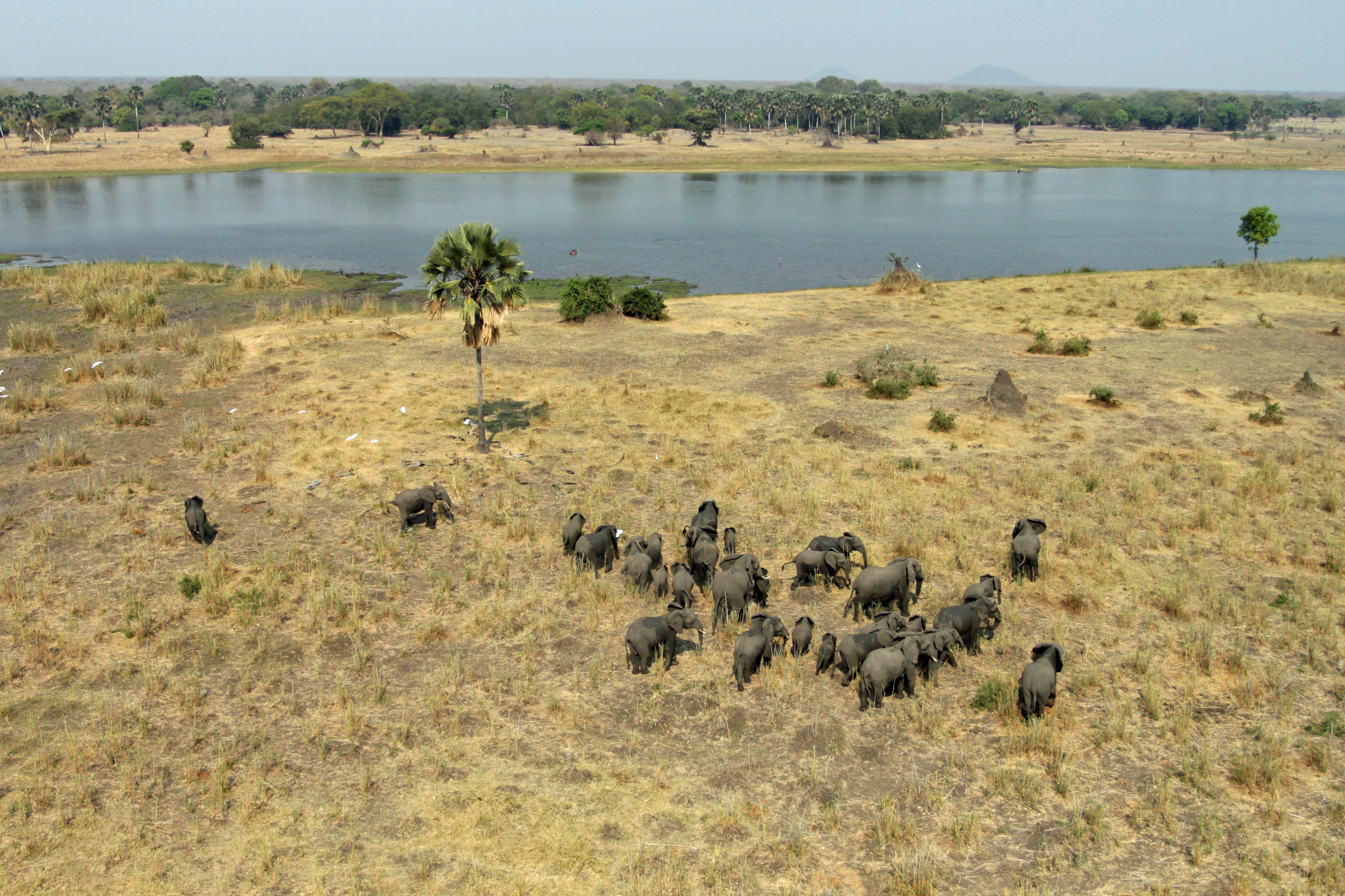
JOHANNESBURG — Representatives from more than 100 countries have agreed to ban worldwide trade in pangolins, which are now threatened with extinction because of illegal trafficking in Asia and Africa.
"This is really, really great news," said Chris Shepherd, the Southeast Asia regional director of Traffic, a wildlife trade monitoring group. "It's black and white now — any pangolins in international trade are illegal."
But the decision here at a meeting of the Convention on International Trade in Endangered Species of Wild Fauna and Flora, does not assure the survival of the eight species of pangolins.
Cites is an international trade agreement signed by 183 countries, including the United States. While the commercial sale of pangolins across international borders will no longer be permitted under the agreement, enforcement is lacking in many countries. The vast majority of pangolin trade already violates Cites and the laws of many nations.
Elusive and shy, pangolins have not earned the sort of attention from conservation groups given to elephants, tigers, rhinoceroses and lions. But pangolins are the most trafficked mammals in the world: More than one million have been illegally traded since 2000, mostly for their meat, considered a delicacy in some Asian countries, and for their scales, which are used in traditional Chinese medicine.
"Poachers who take ivory are increasingly getting caught with pangolin scales as well," said Aurélie Flore Koumba Pambo, scientific coordinator at Gabon's national parks. "If we continue to postpone strengthening of pangolin protection, we will find ourselves in a position where all African pangolin species disappear from our ecosystems forever."
India, Bangladesh, Nepal, Sri Lanka, the Philippines, Vietnam, Nigeria and Senegal — along with a few co-sponsoring countries, including the United States — put forward proposals at the treaty meeting to increase protections for pangolin species.
Only representatives from Indonesia, which along with China and Uganda has expressed interest in farming pangolins, opposed increased protection for two pangolin species in Asia.
But the animals are notoriously difficult to keep alive in captivity, let alone breed. And even if that were not the case, legal trade would have provided a smoke screen for illegal laundering, according to a joint statement by 53 wildlife groups addressed to the Uganda Wildlife Authority.
Because of Indonesia's opposition, trade ban proposals for two of the four Asian species went to a vote. The results were overwhelming: 114 nations voted in favor, Indonesia against, and five abstained, including China.
Individual countries are supposed to carry out the protections mandated by Cites. But Laos, cited by Traffic as a hub for illegal pangolin trade, and other nations have not passed the necessary laws.
"That's the next step — encouraging countries without legislation to get that in place," Dr. Shepherd said. "This is a huge step in the right direction to combating the illegal trade of pangolins, but international cooperation is required to make it effective."









